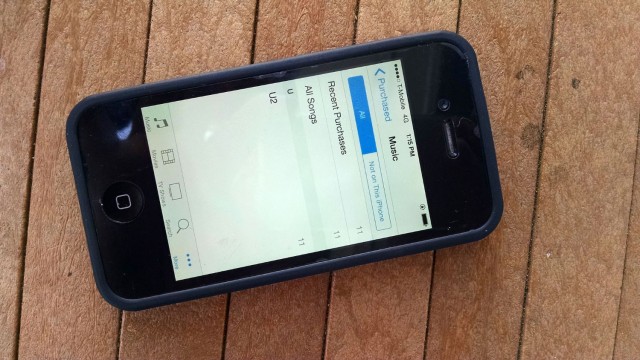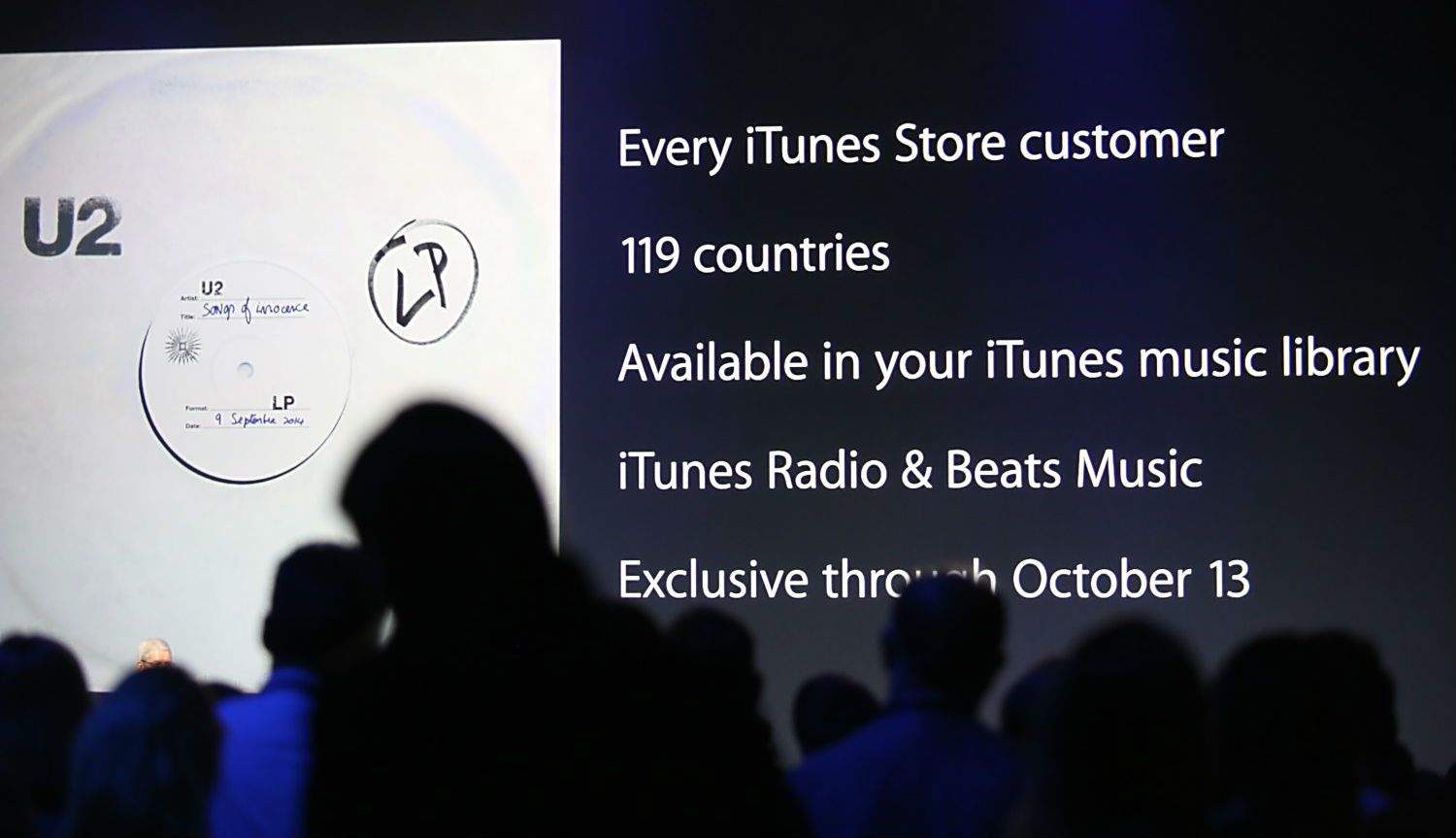Thousands of angry iPhone users have found an album they weren’t looking for: U2’s Songs of Innocence.
Instead of making the band’s mediocre new album an opt-in freebie, Apple jammed it down the throats of a half-billion iTunes Store customers, enraging some of the company’s most loyal fans. Whether they wanted the album or not, it’s now showing up as “purchased” in individuals’ iTunes libraries on their computers and phones.
When Tim Cook trotted out the Irish rockers for a limp finale to Tuesday’s big Apple Watch announcement, he called giving away the band’s new record “the largest album release of all time” — but now it looks like one of the dumbest.
Traditional media outlets like The Washington Post labeled the marketing stunt “rock-and-roll as dystopian junk mail.” On Twitter, where the far more important unfiltered voice of the people can be heard, a steady stream of angry tweets bemoaned Apple’s “gift” of free music.
Who the fuck put a U2 album on my phone?!
— Danielle Tighe (@DanielleTighe) September 11, 2014
And Bob Lefsetz, the curmudgeonly music industry vet whose prognostications accurately sum up the current state of music and tech, rolled out another must-read jeremiad — titled “How U2 Blew It” — excoriating the band for the utter failure of its tie-up with Apple.
“How could the band be so stupid as to believe anybody would actually play their music, especially the 500 million it was pushed to,” Lefsetz wrote.
How could Apple and U2 have gotten something so big so wrong?
It’s a symptom of Cupertino’s role in our culture – no longer is Apple the underdog, a scrappy company fighting for survival against its big corporate competitors. As we often say around the Cult of Mac offices, Apple is the General Motors or General Electric of our time, or maybe both at once.
And you don’t run a company with billions in cash reserves by thinking like a rock ‘n’ roll rebel, high on cheap beer and lusting for life as you careen down the highway in a van loaded with Marshall cabinets, beloved vintage guitars and T-shirts and CDs you hope to sell at your next show.
You run it like a business. Like an industrial plant. Like a fashion juggernaut. Like American Express or Whole Foods or Starbucks or any of the other corporate behemoths that signed on to Apple Pay (and agreed to give Apple a little piece of every transaction, just like the record labels did with iTunes sales).
You do it by building the inescapable infrastructure that will alter the future, not by pinning your hopes on faltering ecosystems or being “cool.”
Apple owes me a new iPhone, because I had to purify this one with fire after finding a U2 album on it
— Warren Ellis (@warrenellis) September 10, 2014
Apple knows that iTunes sales are falling and will likely plummet as music continues to morph into a streaming experience. Some holdouts — hell, I’m one of them — will buy always buy CDs or search the record store bins for obscure vinyl. But collectors are the outliers.
Physical recordings are well on their way to the dustbin of history. And now people don’t just recoil at the thought of owning a shelf full of CDs: They don’t even want a bunch of music files clogging up their hard drives or flash memory.
That’s why Apple bought Beats Electronics for $3 billion. They wanted streaming muscle to bolster iTunes Radio — plus industry connections that will prove key to future deals and some street cred to keep the kids interested in a maturing and increasingly ubiquitous brand.
Streaming is the future. Just as Netflix moved from mailing DVDs to streaming movies to creating its own award-winning series, we’re well on our way to a world where record labels don’t matter and a band is only as good as its latest song or viral video.
U2’s sad performance at Tuesday’s Apple event showed just how desperate old-school rock acts are to remain relevant in this Internet-driven culture. Even a band that has cut mesmerizing tracks like “Sunday Bloody Sunday” and “Pride (In the Name of Love)” — a band I’ve always respected – can be reduced to painful canned banter with Tim Cook in order to raise the profile of their new record. As Lefsetz said, “Having the quality of your music trumpeted by Tim Cook is like having Ed Sullivan say your tunes are good.”
So, why did U2 do it? Because it’s incredibly hard to make a splash these days, and even harder to make one that ripples throughout our culture. At best, Apple’s U2 giveaway is a last-ditch attempt at making iTunes downloads relevant. At worst, it’s a sop to an aging band that’s always been close to the company and couldn’t grab our attention any other way. No matter what, the misguided freebie reinforces the idea of music as an unwanted throwaway commodity.
The good news for U2 is that they apparently got paid by Apple for their onstage shilling and the use of their new record as an iTunes-promoting prop. The bad news is the stunt showcased just how irrelevant the band, and the old way of doing things, has become.



